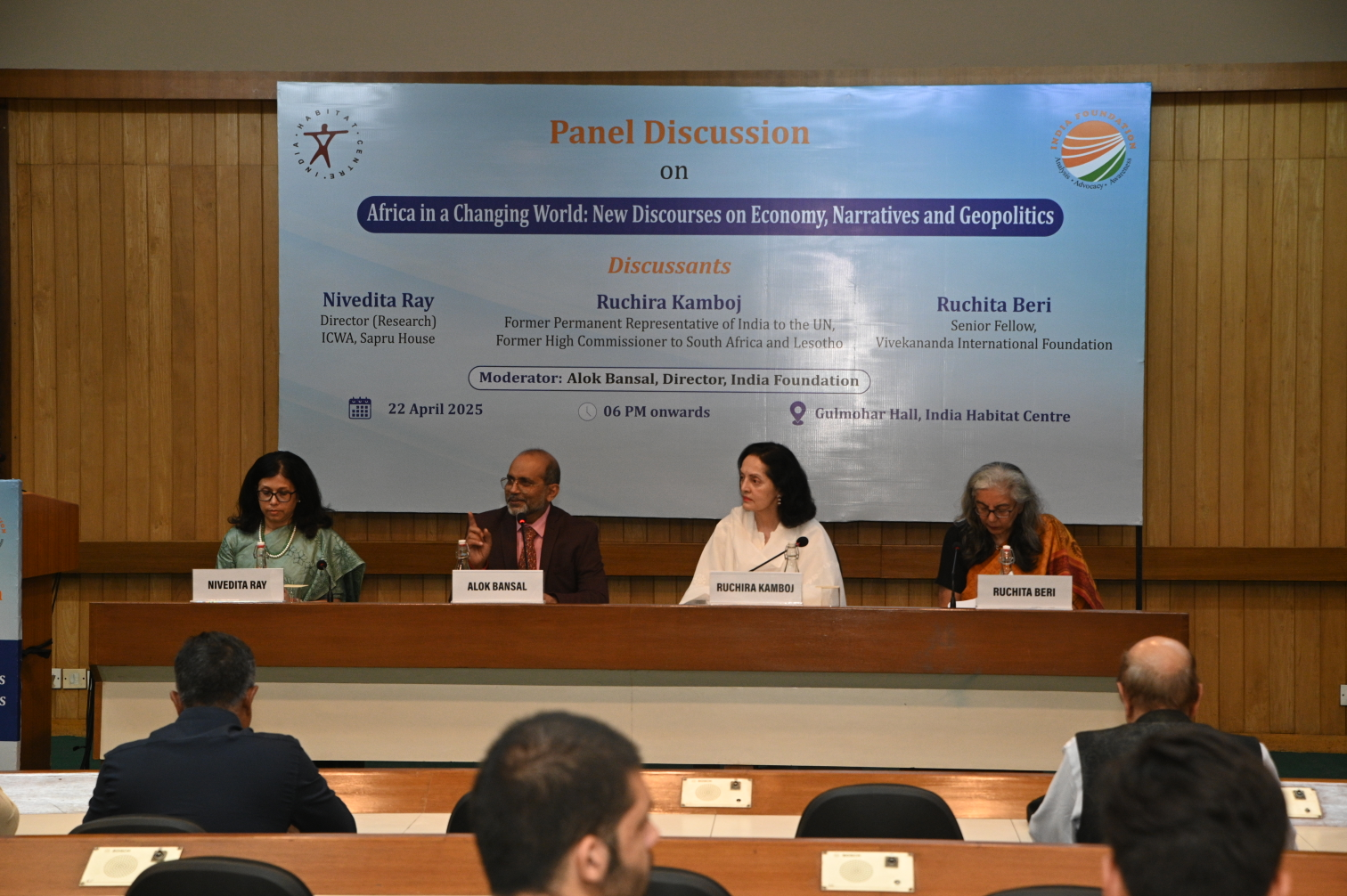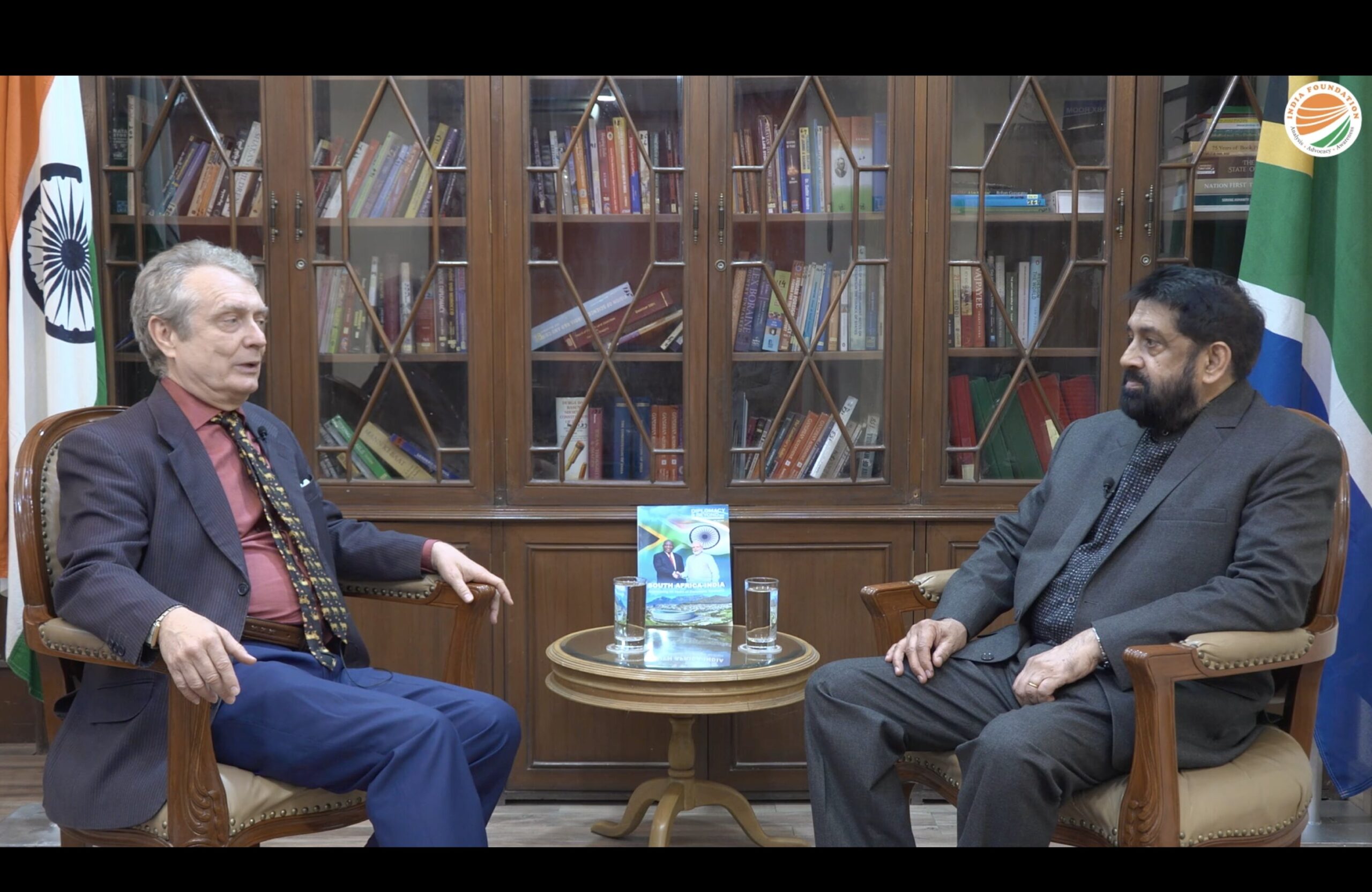
On 22 April 2025, the India Foundation, in collaboration with the India Habitat Centre, organised a panel discussion on the topic ‘Africa in a Changing World: New Discourses on Economy, Narratives, and Geopolitics’ at Gulmohar Hall, India Habitat Centre. The session, moderated by Capt. Alok Bansal, Director of India Foundation, featured three distinguished panelists: Dr. Nivedita Ray, Director (Research) at ICWA, Sapru House; Ms. Ruchira Kamboj, Former Permanent Representative of India to the UN and Former High Commissioner to South Africa and Lesotho; and Ms. Ruchita Beri, Senior Fellow at Vivekananda International Foundation. The discussion explored Africa’s evolving economic, political, and cultural landscape, highlighting its opportunities and challenges.
Dr. Nivedita Ray described Africa as a continent at a “fascinating inflection point,” brimming with possibilities yet fraught with complexities. She noted its colonial legacies, with divisions like Francophone and Anglophone regions shaping current trends. Economically, Africa is a paradox: the IMF identifies nine of the world’s fastest-growing economies and 19 of the poorest countries on the continent. Dr. Ray emphasized challenges like food security, limited electricity access, and climate change, where Africa contributes minimally but suffers disproportionately. She highlighted the growing emphasis on intra-African trade, currently at 20% compared to Europe’s 60%, and political discontent driven by rising prices and frequent international summits. On narratives, she critiqued external labels of “rising Africa” or “hopeless Africa,” pointing to the hashtag #AfricaIsNotACountry as a call for authentic African voices.
Ms. Ruchira Kamboj challenged the Eurocentric “Dark Continent” stereotype, advocating for “African solutions to African problems.” She underscored the African Continental Free Trade Area (AfCFTA), launched in 2021, as the world’s largest free trade area, and noted that 60% of Africa’s trade is with Asia. Economically, she highlighted resource value addition in minerals and renewable energy, with local processing in countries like Nigeria and Zimbabwe, alongside digital innovation in Kenya and start up ecosystems in Nigeria and South Africa. Ms. Kamboj also pointed to Africa’s demographic dividend, with a median age of 19, and its cultural influence through music and fashion. Geopolitically, she acknowledged the continent’s role amid great power rivalries.
Ms. Ruchita Beri focused on Africa’s security challenges, singling out Sudan as the site of the world’s deadliest ongoing conflict. Her insights underscored the geopolitical complexities that continue to shape the continent’s trajectory. The discussion illuminated Africa’s dynamic role in a changing global order, balancing immense potential with persistent challenges, and emphasized the need for nuanced, Africa-led narratives to redefine its future. The sessions ended after Q&A session where a number of questions were asked with the panelists by the audience.




